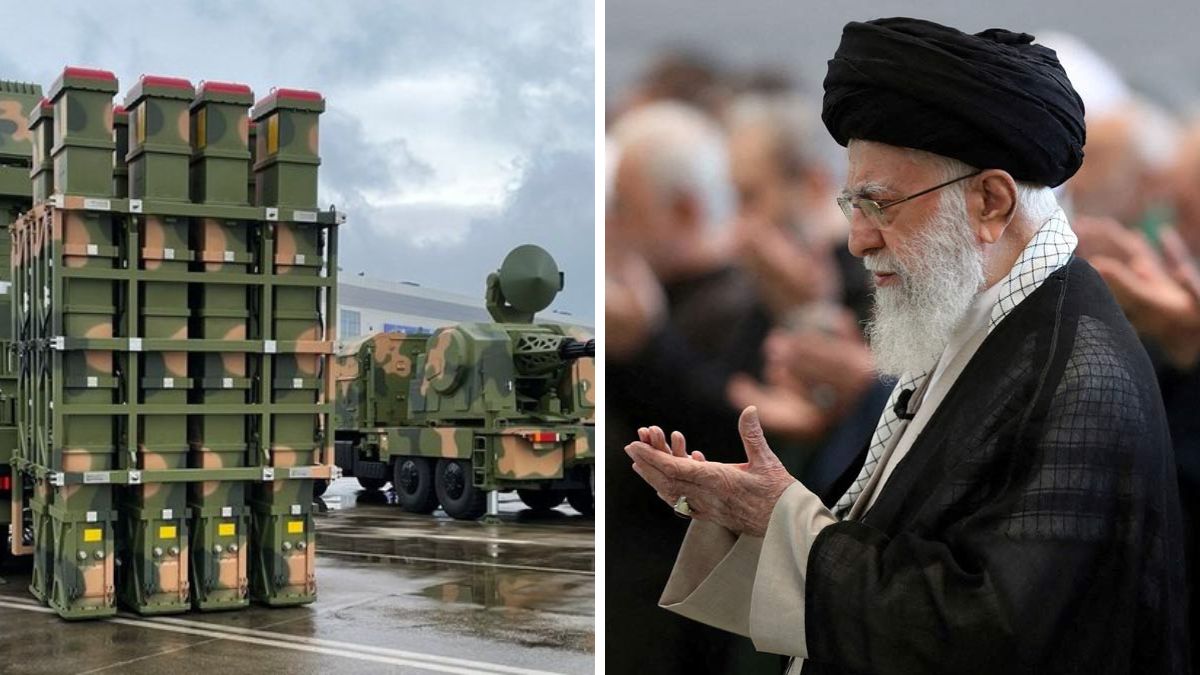Beijing rushes to deny reports that it transferred missile batteries to Iran
 Chinese air defence system. (Right) Iranian Supreme Leader Ali Khamenei | X
Chinese air defence system. (Right) Iranian Supreme Leader Ali Khamenei | X
China has refuted rumours that it was discreetly transferring surface-to-air missile batteries to Iran to replenish its diminished stock in exchange for oil shipments.
Beijing's quick reaction came as British-based platform Middle East Eye reported on Monday that Iran has taken possession of Chinese surface-to-air missile (SAM) batteries after the ceasefire with Israel. The report, quoting an unnamed Arab official, told Middle East Eye that Iran was paying for the SAMs with oil shipments and the Arab countries were aware of Tehran's efforts to back up its air defences. The US was also informed of the development.
However, China wasted no time in curbing the reports. China’s embassy in Israel told Hebrew-language newspaper Israel Hayom that it "never exports weapons to countries engaged in warfare" and maintains strict controls on the export of dual-use items. "China firmly opposes the proliferation of weapons of mass destruction and their delivery systems, and continuously strengthens its enforcement capabilities regarding non-proliferation," the statement read.
China is the largest importer of Iranian oil and a close ally of Iran. Earlier, there were reports that Iran ordered from China large quantities of materials for producing ballistic missiles. Tehran had ordered enough ammonium perchlorate to potentially manufacture up to 800 missiles, the report added.
But the Asian giant opted to keep its distance from Tehran during the 12-day war with Iran. It has adopted a tactical approach, opting not to side with Iran. This, according to experts, showed the limited regional influence of China. Though it condemned Israel for attacking Iran, the Chinese Defence Minister stated it "continues playing a constructive role in securing the stability of the Middle East".
The recent war exposed the limitations of the anti-US 'Iran-Russia-China' axis, according to Alexander Gabuev, the director of the Carnegie Russia Eurasia Centre. "The reality of this conflict turned out to be that Russia and China didn’t run to Iran’s rescue," said Gabuev, adding that each of them was "pretty selfish" and didn't want to get embroiled in the wars of others.
"These are very different wars and different sets of conflicts. The countries are not necessarily sharing the same structures and values and institutional links the same way the U.S. and its allies do," he added.
Experts believe China also didn't want to sacrifice its good relations with the Arab countries, including the UAE and Saudi Arabia, for Iran. Beijing doesn't want to jeopardise China’s oil imports from those countries if a wider war breaks out.
Middle East